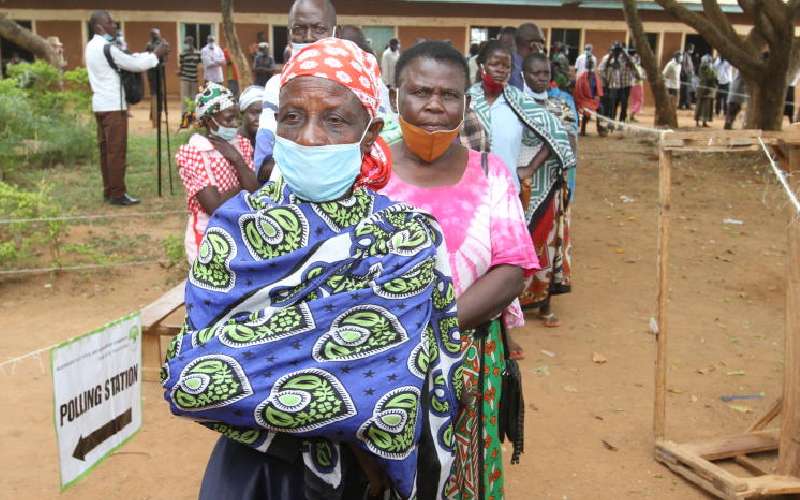×
The Standard e-Paper
Smart Minds Choose Us

Voters at Namalasire primary school polling station in Matungu on March 4, 2021. [Benjamin Sakwa,Standard]
In a race crowded with presidential hopefuls, ‘State projects’, as they are fabled, are a contradiction of sorts, holding undue advantage and disadvantage at the same time.